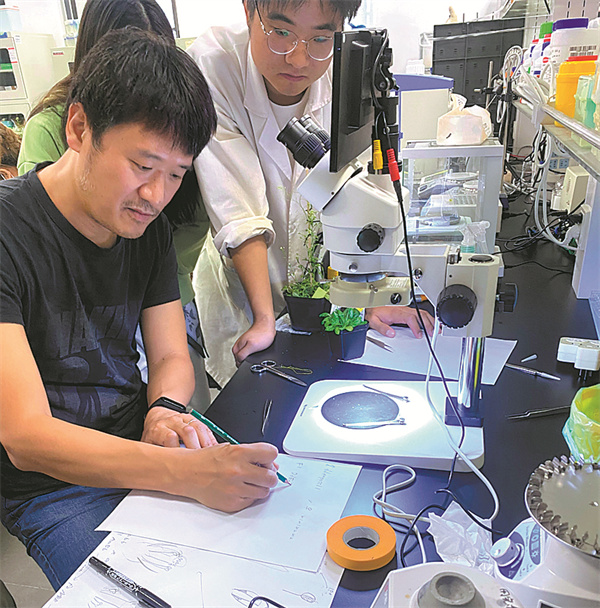Japanese professor honored for his work
Pioneer in plant immunity leads university to international acclaim, Li Yingxue and Liu Kun report in Wuhan.


Even now, as the laboratory team has grown, Tsuda continues to hold one-on-one discussions with each student every one to two weeks.
"We talk about the development of our projects and the latest experimental progress, which has greatly motivated me to advance my research," Ding says.
Under the careful guidance of Tsuda, many young talents in the team have emerged successful. Some students have been selected for nationally funded postdoctoral research programs and national graduate scholarships.
After graduating, his students have successfully continued their studies at prestigious institutions such as Peking University, Imperial College London, and Kyoto University, thanks to his recommendations.
"Chinese people work very hard and very fast. That also gives me so much motivation," Tsuda says.
He also frequently invites internationally renowned experts to the university for communication and online academic presentations. "I hope to promote more international exchange and collaboration in the future," he says.
When invited to participate in international academic conferences, Tsuda often highlights China's strong research capabilities and advanced scientific conditions, encouraging foreign researchers to engage in academic exchanges in China.
He has successfully referred several outstanding young foreign talents to work full time at domestic universities and research institutions.
According to his colleague, Professor Han Xiaowei from the College of Plant Science and Technology at Huazhong Agricultural University, Tsuda is a very kind and considerate person.
The two guide their respective students, primarily overseeing their own research topics, but they also hold joint meetings where they offer each other suggestions.
"We collaborate on research, and there has never been any conflict between us. We often joke that we have a brotherly relationship. From my perspective, I feel like I'm always observing and learning from him. Whether in research or in how to conduct oneself, there's so much to learn," Han says.
As a Japanese scholar who is well-versed in the Romance of the Three Kingdoms and enjoys Chinese cuisine, Tsuda moved his family to Wuhan in 2019 when his three children were aged 3, 5, and 7. The whole family has been diligently learning Chinese and integrating into the local culture.
Currently, his children are taking language courses alongside their Chinese peers. Tsuda hopes they will one day serve as ambassadors of friendship between China and Japan.
"I hope that through me, my children, and my family, we can continuously enhance mutual understanding and friendly relations between the Chinese and Japanese people," he says.




































